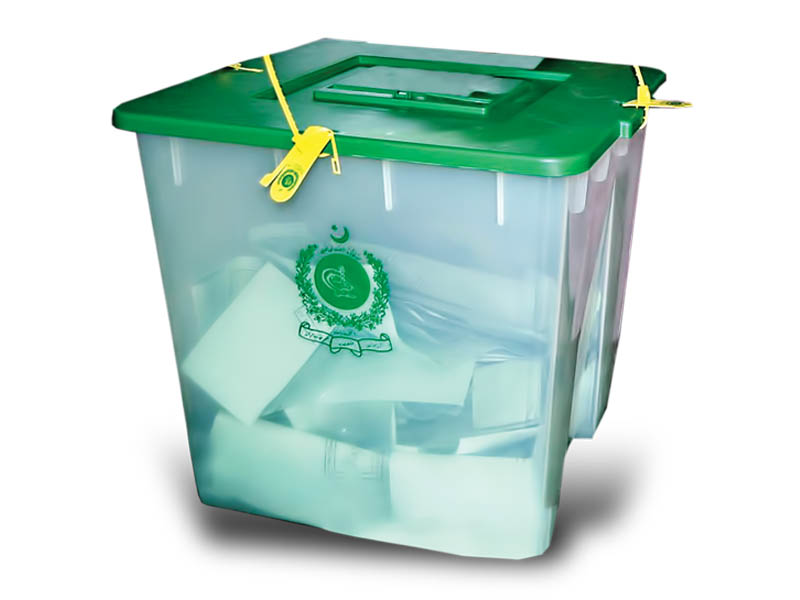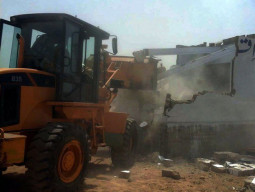
Not only the polling staff but also thousands of prison inmates, people with disabilities and government employees deployed far away from their home constituencies would not be able to cast their votes because they were not aware of the Election Commission of Pakistan's (ECP) facility.
"The election staff and inmates could cast their votes through postal ballots. July 10 was the last day for submitting applications for it before the returning officers. However, hardly a few people sent their forms for casting their votes," said a senior officer working in the ECP.
In Sindh, there are a total of 17,758 polling stations, with 57,049 polling booths where 206,663 polling staff, including presiding officers, assistant presiding officers, polling officers and others will be deployed to perform duties. According to the ECP, as many as 191 returning officers (ROs) and 29 district returning officers will be working to conduct the elections along with the polling staff.
According to rules, each polling station is headed by a presiding officer. However, it may comprise various booths depending on its size. For each booth, two assistant presiding officers and one polling officer have to be deployed.
Army deployed at polling stations not given powers of first class magistrates: ECP
Apart from the polling staff, personnel of police and army will also be deployed at each polling station to provide security. The ECP has directed that two army soldiers, one of them inside and the other outside, along with one policeman should be present at every polling station. Thus, a total of 35,516 army personnel and 17,758 cops will perform security duties at polling stations across Sindh. This number is in addition to a large number of Rangers and police personnel who will be patrolling on elections day.
All these personnel of the army, paramilitary force and police will apparently not be able to cast their votes in the elections.
Dr Rashid Pirzada, a veterinary doctor, has been appointed as a monitoring officer for the North Nazimabad area. He did not know that he could have cast his vote through postal ballot had he submitted the required application on time. "I am a veterinary doctor. For the first time, I am performing election duty. I had no idea about postal ballot and nor had anyone informed me about it," he lamented.
Nazia Irfan, who has been made a presiding officer at a polling station in Lyari, said her vote was registered in Gulshan-e-Iqbal. When informed that Tuesday was the last day to send an application to the RO concerned for postal ballot, she, likewise, expressed her ignorance of postal ballots. "No one informed me about the system of postal ballots," she decried.
Another government official who works in Pakistan Railways similarly bemoaned over the lack of awareness regarding postal ballots. He regretted that the ECP did not make required efforts to create awareness about the procedure for polling staff if they wanted to cast their votes.
The case of Umaid Ali, a secondary school teacher in Sukkur, was different. He could not physically go to the polling station in his village to cast his vote but he was aware of the procedure through which he could vote for candidates he supported. However, the complexities in the procedure deterred him from applying for postal ballot. Now, he is among the other polling staff who would abstain from voting due to their duties.
A survey of two NA constituencies
There are as many as 197 polling stations and 681 polling booths in NA-236 District Malir. Therefore, the polling staff includes 197 presiding officers, 1,362 assistant presiding officers, 681 polling officers and 197 peons, making a total of 2,437 staff to be deployed on elections day.
‘Continue crackdown against ECP code violators’
However, only less than 1% of the polling staff for NA-236 have applied for casting votes through postal ballots. Malir RO Safi Mohammad Pirzada shared with The Express Tribune that his office received only 200 applications for postal ballots, of which only 20 applications came from the polling staff. "We have received most of the applications from armed forces and federal government employees," he said.
The RO, however, asserted that he had intimated the polling staff reporting to him about the facility of postal ballots. He claimed that despite his repeated directives, the election staff did not take any interest.
In a constituency of District South, NA-246, there are a total of 244 polling stations and 976 booths. Thus, the polling staff consists of 244 presiding officers, 1,952 assistant presiding officers, 976 polling officers and 244 peons. Of them, according to ECP officials, hardly 25 applications were received for casting votes through postal ballots.
No vote for prisoners
As many as 17,515 inmates languishing in various jails of Sindh will also not be able to cast their votes.
Speaking to The Express Tribune, Karachi Prisons DIG Kazi Nazir Ahmed said the department had not yet received any notification regarding the facility of postal ballots for prisoners. "There are around 4,710 prisoners in Karachi Central Jail, but no one has intimated us [about voting procedure for them]," the DIG said. "The inmates have no interest in casting their votes due to lack of awareness," he added.
The DIG went on to say that even if the prisons department had been notified of the facility of voting for the prisoners, it still would have been a cumbersome process as the inmates had to first write an application to the jail staff who would have requested the ROs concerned on their behalf who would have sent a postal ballot to jail.
Postal balloting likely to see surge
According to DIG Ahmed, a majority of inmates did not even remember where their votes were registered and they also had no idea about candidates contesting from their home constituencies.
Other prisons in Sindh are also reportedly in the same condition and their inmates have not applied to cast their votes.
People with disabilities
The ECP had also approved the facility of postal ballots for people with disabilities. However, due to lack of awareness, many people with disabilities could not apply for it.
Commenting on the situation, Community-Based Inclusive Development Network Pakistan International Coordinator Ghulam Nabi Nizamani said the ECP tried to exclude people with disabilities from voting by offering them the procedure of postal ballots. The ECP should have taken inclusive steps and ensured that the polling stations were accessible to people with disabilities, he said.
Many people with disabilities are comparatively less educated and hence they do not know how the postal ballot works, Nizamani said. "How would any disabled person know how to get a postal ballot as most of them cannot download an application form and send it to the RO concerned," he added.
ECP clarifies
When the ECP was contacted to give its version on the matter, a spokesperson claimed that the commission had issued a press release on July 2 to inform the public about the postal ballot procedure.
"Through our press release we had appealed to all the government employees, inmates and even disabled persons to submit their applications to returning officers by July 10 so that the process for their vote could be initiated," he said.

1725877703-0/Tribune-Pic-(5)1725877703-0-165x106.webp)















COMMENTS (1)
Comments are moderated and generally will be posted if they are on-topic and not abusive.
For more information, please see our Comments FAQ